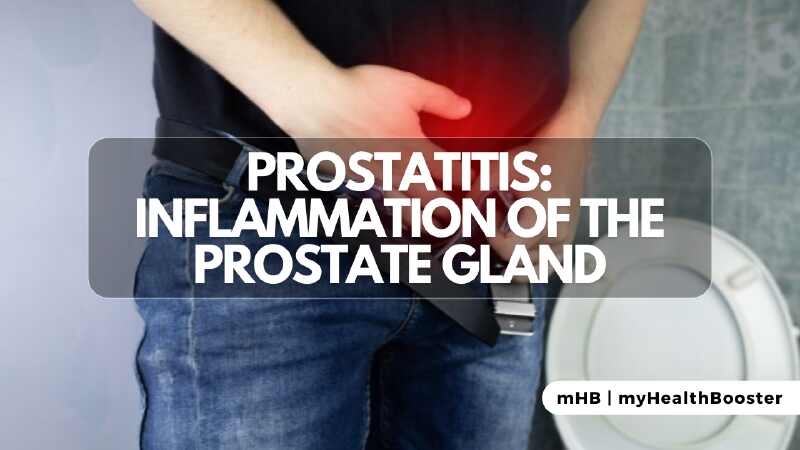The prostate gland, a walnut-sized organ, is an integral part of the male reproductive system. Located below the bladder and in front of the rectum, it encircles the urethra, playing a crucial role in producing seminal fluid for transporting sperm through the urethra.

Causes of Prostatitis
Prostatitis, inflammation of the prostate gland, can stem from bacteria entering the gland from the urinary tract, rectum, or sexually transmitted infections. Common culprits include Neisseria gonorrhoeae, Chlamydia trachomatis, and HIV. In some cases, especially chronic prostatitis, the cause remains elusive.
Risk Factors
While prostatitis can affect men of all ages, it is more prevalent in young and middle-aged men. Risk factors include a history of prostatitis, recent urinary tract infections, catheter use, enlarged prostate, engagement in rectal intercourse, urinary tract abnormalities, dehydration, and pelvic trauma from activities like cycling or horseback riding.
Prostatitis Symptoms and Signs
Symptoms vary based on the type and underlying cause of prostatitis. They include painful or frequent urination, blood in urine, groin or abdominal pain, fever, chills, urethral discharge, and sexual dysfunction. The onset and severity differ, with acute bacterial prostatitis often displaying rapid and pronounced symptoms.
Diagnosis and Tests
Diagnosis involves urine analysis and a digital rectal examination to palpate the prostate. Prostatic fluid samples may be collected through massage. Additional tests, such as a complete blood count, electrolyte panel, blood cultures, and PSA test, may be conducted. Imaging tests like ultrasounds, CT scans, cystoscopy, and prostate biopsy may also be employed.
Prostatitis Treatment Approaches
Treatment hinges on the type and cause of prostatitis. Antibiotics are prescribed for bacterial infections, and pain control is crucial. Hospitalization may be necessary in severe cases. Alpha-blockers, anti-inflammatory medications, and lifestyle adjustments aid in symptom management.
Natural Remedies
Complementary to medical treatment, natural remedies include warm sitz baths, lifestyle modifications (avoiding alcohol, caffeine, and spicy foods), and physical therapies like myofascial release and acupuncture. Prostate massage may offer relief in some cases. However, evidence for herbal remedies remains inconclusive.
Complications
Potential complications encompass chronic prostatitis, urinary retention, infertility, abscess formation, bacteremia/sepsis, and, rarely, death. While prostatitis can elevate PSA levels, it does not increase the risk of prostate cancer.
Prognosis
Acute bacterial prostatitis responds well to treatment, offering a favorable prognosis. Chronic prostatitis, particularly the nonbacterial variant, may lead to long-term symptoms, necessitating ongoing care. Prostatitis itself does not heighten the risk of developing prostate cancer.
Understanding prostatitis and its diverse manifestations allows for effective diagnosis, tailored treatment, and comprehensive patient care. Regular follow-up with healthcare professionals ensures optimal management of this condition.
